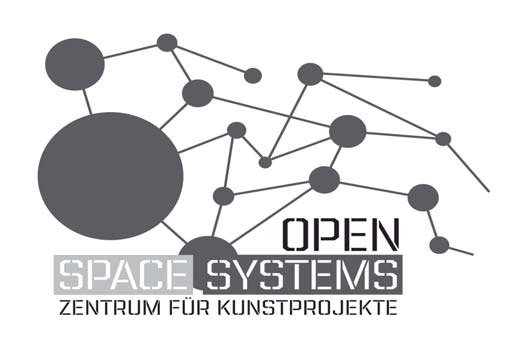Lifelong Learning
dal 5/9/2011 al 1/10/2011
Segnalato da
Gerhard Dirmoser
Daniel Hafner
Kathi Hofer
Jochen Holler
Michael Kargl
Santiago Sierra
Karo Szmit
Anna Witt
Birgit Rinagl
Franz Thalmair
5/9/2011
Lifelong Learning
Open Space - Zentrum fur Kunstprojekte, Wien
The exhibition shows eight positions of contemporary art examining power relations in the concept of 'lifelong learning'. Based on the idea of an infinite loop of communicative, media and societal contexts, the works focus on the function of language in the educational process as well as on the performative dimension of knowledge transfer and acquisition.

Project curators: CONT3XT.NET - Birgit Rinagl, Franz Thalmair
Participating artists: Gerhard Dirmoser, Daniel Hafner, Kathi Hofer, Jochen Höller, Michael Kargl, Santiago Sierra, Karo Szmit, Anna Witt
“When the schoolmistress instructs her students on a rule of grammar or arithmetic, she is not informing them any more than she is informing herself when she questions a student. She does not so much instruct as “insign,” give orders or commands.”
(Gilles Deleuze and Félix Guattari, A Thousand Plateaus: Capitalism and Schizophrenia, Continuum, London, 2004, p. 84)
Education, upbringing or simply just learning – the acquisition and transmission of knowledge are always structured on a variety of levels by power. On the one hand, these have a direct effect on the contents already learned, and to be learned, by way of inclusion and exclusion mechanisms; on the other hand, the power relations also have an effect on the manner in which knowledge is transmitted. The term ‘learning’ in this context is instead a much more open and constantly repeating training about life’s subjective realities and not just limited to the communication of academic knowledge
The exhibition Lifelong Learning (Iteration II, Knowledge) shows eight positions of contemporary art examining power relations in the concept of ‘lifelong learning.’ Based on the idea of an infinite loop of communicative, media and societal contexts, the works focus on the function of language in the educational process as well as on the performative dimension of knowledge transfer and acquisition. Along with looking at individuals’ social engagement, economic and sociopolitical parameters are also examined, like the ability to compete, adaptation competencies and biographical freedom of planning. In a cross-cultural network and knowledge society, the keywords ‘lifelong learning’ have actually become the main criterion for the supply of societal resources, no longer just an aspect of education subjugated by educational institutions.
Repetition as a central method of structuring learning processes serves as a point of departure for the participating artists: Gerhard Dirmoser’s Verben im KONTEXT: Die Kunst des Handelns (Verbs in CONTEXT: The Art of Action), for instance, shows at a glance the complex interconnections between more than 10 000 common verbs. Michael Kargl also helps himself to a similarly stored reference collection and compilation as the basis for knowledge acquisition with his installation configurations of knowledge [blackboards], in which he abstracts various standardized screen and monitor formats. In prozessanalyse 1-3 (process analysis 1–3), Jochen Höller grapples with the self-reflective moment of contemplation in a series of drawings depicting it as a circular movement against a backdrop of relational approaches to the topics of ‘repetition’ and ‘knowledge.’ With the installation Figur 1 (Figure 1), Kathi Hofer scrutinizes the relationship between knowledge and affect by encroaching upon the causal relationships of subject, image and reality in the continuous loop of image (re)production. Karo Szmit examines the reaction to repeating units of information in a changed context with her performance Remember Me, where she literally writes her memory onto the audience
during the performance. The power of repetitive action is the focus of both Santiago Sierra’s 11 Personas Remuneradas para Aprender una Frase (11 People Paid to Learn a Phrase) as well as Anna Witt’s push. Sierra operates with the imitation of the sounds of speech emptied of all meaning, while Witt uses the imitation of powerful public authorities’ stereotypical gestures. In Education Archetype, Daniel Hafner ultimately focuses on the repetition of never-changing contexts in which he presents an interactive operational model of conventional teaching methods.
The process of transferring knowledge and acquiring such is brought into question in Lifelong Learning (Iteration II, Knowledge) in various contexts and beyond the mere accumulation of information. The artworks on display instead move into the centre of awareness the acquisition of various forms of communication: succumbing to power, exerting power, time and time again – with their focus firmly placed on others and on oneself.
Supported by:
BM:UKK
Stadt Wien - Kulturabteilung MA 7
kind support provided by:
cyberlab - Digitale Entwicklungen GmbH
In Cooperation with "Coded Cultures: City as Interface", a Festival focusing on second district in Vienna
Opening: 6 September 2011, 19.00 pm
Open Space, Open Systems
Zentrum für Kunstprojekte
Lassingleithnerplatz 2, Vienna
Open Friday, Saturday 13.00 - 18.30 and by appointment.
Admission free



